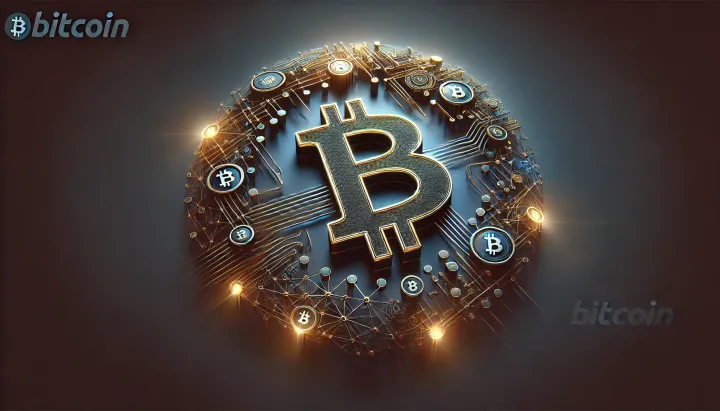Decentralized Podcasting: How Nostr’s Open Protocol Empowers Creators and Resists Big Tech
In the October 23, 2024 episode of the Bitcoin Review podcast, the panel dives into the integration of the Nostr protocol with Podcasting 2.0, focusing on creating decentralized, open-source solutions for the podcast industry.

- My 'briefing notes' summarize the content of podcast episodes; they do not reflect my own views.
- They contain (1) a summary of podcast content, (2) potential information gaps, and (3) some speculative views on wider implications.
- Pay attention to broadcast dates (I often summarize older episodes)
- Some episodes I summarize may be sponsored: don't trust, verify, if the information you are looking for is to be used for decision-making.
Summary
The panel in the October 23, 2024 episode of the Bitcoin Review podcast focuses on Nostr’s role in advancing Podcasting 2.0 through decentralized social and payment features. Panelists discuss the challenges of Big Tech monopolization in podcasting and highlight how Nostr’s value-for-value model, integrated social graph, and cross-app commenting transform the creator-listener relationship. By focusing on ownership, interoperability, and direct monetization, Nostr offers a compelling vision for an open podcasting ecosystem.
Take-Home Messages
- Open Podcast Access: Nostr’s integration empowers creators to distribute content independently of Big Tech, building a resilient ecosystem.
- Direct Support Model: The value-for-value model provides creators with direct listener support, sidestepping ad-reliant revenue structures.
- Cross-App Interaction: Nostr’s social graph enables seamless commenting across apps, encouraging a more interactive podcast experience.
- Creator-Owned Social Graph: By supporting a decentralized social graph, Nostr allows creators to control their audience reach across platforms.
- Extended Protocol Applications: Nostr’s applications in podcasting, social engagement, and gaming signal its potential to reshape digital media.
Overview
In the October 23, 2024 episode of the Bitcoin Review podcast, the panel focuses on Nostr’s integration with Podcasting 2.0, an initiative started by Adam Curry and Dave Jones to counter Big Tech’s influence in podcasting by maintaining open access. Podcasting 2.0’s Podcast Index serves as a safeguard against corporate censorship, with Nostr adding a layer of decentralized control and social features that engage both listeners and creators. The panel members emphasize the transformative potential of Nostr’s features, including cross-app commenting and its capacity to allow content creators to connect with audiences across different apps.
Nostr’s protocol enables real-time interaction, tackling RSS limitations by allowing user comments to travel between platforms. Fountain, a leading Podcasting 2.0 app, has adopted this cross-app functionality, streamlining social engagement and user interaction. Beyond social integration, Nostr facilitates the “value-for-value” model, a direct monetization approach allowing listeners to support creators financially via the Lightning Network. Both custodial and non-custodial options through Nostr Wallet Connect provide flexibility, accommodating diverse user needs.
Nostr's broader applications extend to other social and interactive spaces, including gaming, where it can enable a more engaging user experience. The panel views Nostr as a platform for empowering creators through open networks, enabling ownership of social data, and establishing a more interactive, community-focused podcasting landscape.
Stakeholder Perspectives
- Podcasters: Value Nostr’s user-driven model that promotes direct interactions and revenue generation without ad dependence.
- Listeners: Benefit from an enhanced, cross-platform social experience, engaging in comments and interactions beyond traditional RSS limitations.
- App Developers: Appreciate Nostr’s flexible integration options, making decentralized content delivery more feasible within their apps.
- Big Tech Competitors: May see Nostr’s open-access approach as a threat to closed-platform dominance in media monetization.
- Policymakers: May recognize Nostr as a model for supporting open protocols, promoting competition, and reducing centralized control in digital media.
Implications
Nostr’s decentralized protocol offers an open-access alternative for podcasting, challenging Big Tech monopolies that restrict creator independence. By enabling creators to maintain control over their social graphs and by supporting value-for-value monetization, Nostr’s model shifts power dynamics, potentially informing future regulatory frameworks that prioritize platform neutrality and content ownership rights. For creators and listeners, Nostr’s design fosters more meaningful interactions and community engagement across multiple apps, paving the way for a sustainable, user-driven media ecosystem.
Moreover, as an open protocol, Nostr provides rich, decentralized analytics, offering creators transparency that’s unavailable on traditional platforms. This insight into audience interactions positions Nostr as an attractive option for creators aiming to build independent, monetized content ecosystems that prioritize direct audience relationships.
Future Outlook
Nostr’s decentralized model holds promise for redefining podcasting through user-driven ownership and interoperability across platforms. As more creators and users adopt Nostr’s tools, particularly value-for-value payments and open social features, decentralized podcasting may gain momentum, reshaping the landscape of digital content distribution. However, the full potential of this model will rely on reducing UX friction, making Nostr accessible to mainstream audiences, and ensuring compatibility with established protocols like RSS.
The success of decentralized podcasting will likely hinge on mainstream app adoption, particularly in incorporating Nostr’s social graph and payment tools. Continued development of user-friendly onboarding processes and compatibility solutions will be essential in bridging the gap between centralized and decentralized platforms, enhancing accessibility and long-term viability.
Information Gaps
- What are the primary barriers for decentralized protocols like Nostr in competing against established platforms like Spotify? Understanding these barriers is essential for identifying strategies to position Nostr as a viable alternative, which is necessary for attracting creators and listeners away from Big Tech monopolies.
- What UX improvements are necessary to make Nostr more accessible to the average podcast listener? User experience challenges must be addressed to lower entry barriers and promote broader adoption, especially for non-technical users who might be unfamiliar with decentralized protocols.
- How can the value-for-value model foster more sustainable revenue streams for podcasters on decentralized platforms? As Nostr continues to promote user-funded models, research into the sustainability and scalability of value-for-value is essential for supporting independent podcast creators long-term.
- How could the shift from RSS to Nostr enhance the interactivity of podcasting without sacrificing compatibility? This question addresses the practical steps required for broader adoption, as understanding how Nostr can improve podcast interactivity while remaining compatible with RSS is vital for cross-platform functionality.
- What new data insights can Nostr provide for podcasters that are inaccessible on centralized platforms? By exploring the analytics potential of decentralized platforms, this question examines how Nostr can offer valuable insights for creators, allowing them to optimize content and deepen audience engagement.
Broader Implications
Decentralized Control in Digital Media
The shift toward decentralized media through protocols like Nostr can provide creators with autonomy from Big Tech, protecting content from corporate censorship and monopolization. By supporting a decentralized ecosystem, Nostr empowers content creators and listeners to interact directly, fostering an open-access model that could redefine media landscapes. This trend aligns with broader movements toward decentralization in digital media, where protocols like Nostr could establish new standards for platform neutrality and content ownership.
Impact on Podcast Monetization Models
The value-for-value model facilitated by Nostr and the Lightning Network offers a sustainable monetization path for creators, reducing dependency on ad revenue and centralized payment systems. This model's success could inspire broader adoption of decentralized finance in podcasting, where creators directly benefit from audience support. As more listeners adopt Bitcoin and Lightning payments, Nostr’s model can serve as a prototype for other media platforms seeking financial independence from ad-based revenue.
Enhanced User Privacy and Data Ownership
Nostr’s decentralized social graph offers users control over their data and interactions, an alternative to centralized platforms that often commoditize user information. By prioritizing privacy and user-owned data, Nostr’s approach could catalyze demand for similar privacy-preserving features across other digital platforms. This model has significant implications for Bitcoin adoption in digital content, as it strengthens the case for decentralized, privacy-respecting technologies in an increasingly data-driven world.
Future of Cross-App Interactivity
By enabling cross-app comments and interactions, Nostr addresses longstanding limitations in podcasting, such as isolated user engagement within closed platforms. This feature aligns with Bitcoin’s ethos of open interoperability, where users can navigate multiple platforms without compromising connectivity. Nostr’s model may serve as a foundation for developing decentralized social networks, promoting interoperability and content sharing across digital environments.



Comments ()